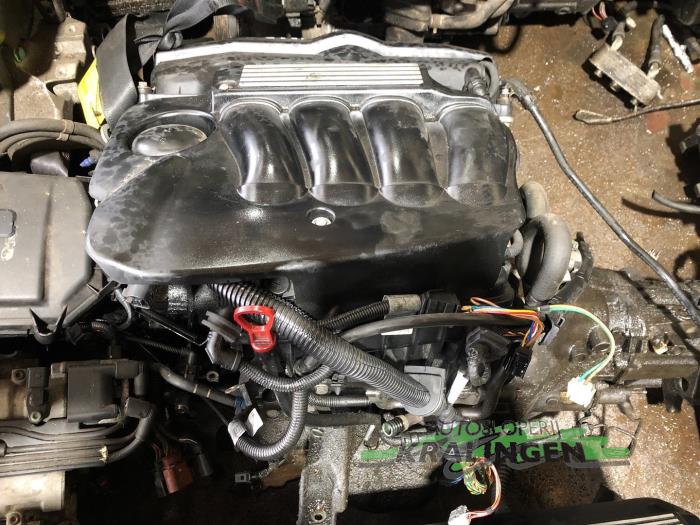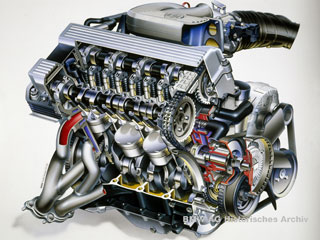BMW 318ti: Efficiency Specs and Qualities Explained
BMW 318ti: Efficiency Specs and Qualities Explained
Blog Article
Crucial Considerations for Selecting the Finest Engine for Your Demands
In the world of picking the optimal engine to meet your requirements, numerous crucial factors need thorough factor to consider to ensure ideal performance and effectiveness. From the nuanced equilibrium in between power and performance to the often-overlooked elements of maintenance and service requirements, each element plays a critical role in establishing one of the most appropriate engine for your particular demands. As the complexity of engine modern technologies remains to advance, discerning one of the most fitting option demands a deep understanding of the interaction between different factors to consider. By exploring the complex internet of factors that underpin this decision-making process, a more clear course emerges towards choosing an engine that not just fulfills but surpasses your assumptions.
Power and Performance
When reviewing engines for optimal efficiency, it is crucial to focus on both power output and performance. Efficiency refers to exactly how well the engine converts gas right into functional energy. By very carefully assessing both power and effectiveness, you can pick an engine that delivers optimum efficiency and fulfills your needs efficiently.
Gas Performance and Economy
In the realm of engine choice, the consideration of gas performance and economic situation holds paramount relevance. Fuel efficiency refers to the engine's capability to convert fuel into energy with very little waste, straight influencing operating expense and ecological sustainability. bmw 318ti. When choosing an engine, evaluating its fuel economy is important to identify long-lasting cost savings and environmental effect. Engines with higher fuel effectiveness not only reduce fuel costs but also decrease carbon emissions, contributing to a greener procedure.

Compatibility and Application
Thinking about the fuel efficiency and economy of an engine, the next essential element to address is its compatibility and application within details operational contexts. Compatibility refers to exactly how well the engine incorporates with the general system or devices it powers. It includes elements such as physical measurements, placing alternatives, electrical interfaces, and control systems. Guaranteeing compatibility is important to protect against concerns such as getting too hot, vibrations, or power inequalities (bmw 318ti).
Various engines are developed for particular functions, whether it be commercial equipment, marine vessels, autos, or power generators. Recognizing the intended application allows for the selection of an engine that can provide the needed power output, torque, and functional attributes.
Upkeep and Solution Requirements
Maintenance and solution demands play a crucial duty in guaranteeing the durability and ideal performance of an engine. Normal upkeep is necessary to stop malfunctions, expand the life expectancy of the engine, and maintain its website here efficiency. When selecting an engine, it is very important to take into consideration the maker's recommended maintenance timetable and the accessibility of solution facilities or certified service technicians.
Factors such as the regularity of oil changes, filter substitutes, and total evaluations can significantly impact the engine's efficiency. Some engines might require even more frequent servicing based on their design and use, while others may have longer intervals between upkeep checks. It is vital to abide by these service requirements to websites avoid costly repairs and unexpected downtime.

Expense and Budget Plan Considerations
When selecting an engine for a certain application,Budget plan constraints usually play a considerable role in the decision-making procedure. When considering the price and budget plan effects of selecting an engine, it is important to analyze not just the first purchase rate but likewise the long-term costs related to upkeep, fuel intake, and possible upgrades or fixings. It is critical to strike a balance in between the upfront price of the engine and its overall lifecycle expenses why not find out more to ensure that the selected engine continues to be economically lasting throughout its functional life expectancy.
Variables such as fuel durability, effectiveness, and integrity can straight influence the total cost of ownership of an engine. While a much more pricey engine might have higher ahead of time prices, it could potentially result in lower maintenance and fuel costs gradually, therefore supplying far better worth over time. Additionally, considering the accessibility and expense of spare parts, along with the simplicity of upkeep and solution, can assist stop unforeseen monetary stress in the future. By meticulously evaluating these price and spending plan factors to consider, you can make an enlightened choice that straightens with your functional demands and monetary constraints.
Conclusion

Gas efficiency refers to the engine's ability to convert fuel into power with minimal waste, straight influencing operating costs and ecological sustainability.Variables influencing fuel effectiveness consist of engine design, combustion effectiveness, and total performance optimization. Additionally, choosing the ideal gas type and grade as suggested by the engine supplier can further enhance effectiveness and extend engine life-span.
Engines with excellent serviceability features and easily offered components can reduce maintenance costs and reduce the time the engine is out of procedure - bmw 318ti. It is crucial to strike an equilibrium in between the upfront cost of the engine and its overall lifecycle costs to guarantee that the selected engine stays economically lasting throughout its operational life expectancy
Report this page